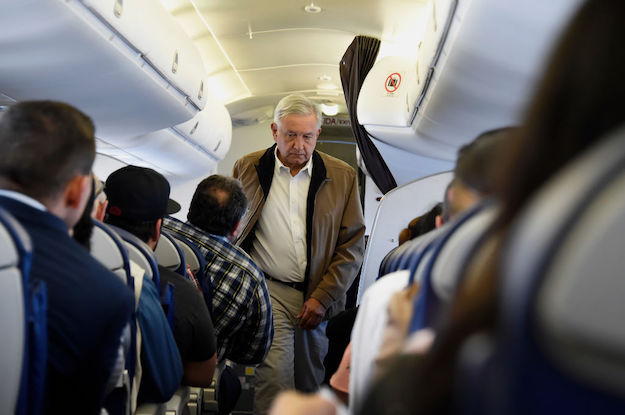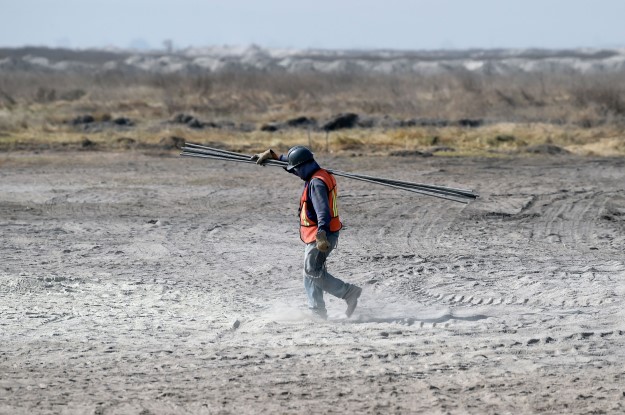MEXICO CITY – A recent TV broadcast by Mexican journalist Carlos Loret de Mola centered on La Candelaria, a small indigenous community near Ocosingo, Chiapas, in Southern Mexico.
The Tzeltal indians in La Candelaria are no strangers to hardship and government neglect – few have access to electricity or running water. But austerity, or President Andrés Manuel López Obrador’s version of it, has made matters worse.
Until recently, around 4,000 members of the Tzeltal community received support through Prospera, a government-funded social program that, among other things, provided conditional cash transfers and health services to the poor. In La Candelaria, residents relied on a Prospera-funded health center for basic needs – ibuprofen, rehydration solutions for diarrhea, antibiotics, and the like. In emergencies, the community could request government air support to ferry them to a hospital that takes more than eight hours to reach on foot.
But according to Loret de Mola’s report, widespread spending cuts and López Obrador’s decision to replace Prospera with a more limited set of social programs have left the health center in La Candelaria almost without medicine. There is also no longer any budget for air transfers for emergencies. Some 900 people in the community have had limited access to medicine since the last batch arrived in October; one infant died last March without ever being diagnosed.
López Obrador has made austerity a core value of his administration. That is welcome. For years, Mexican governments have spent more than was authorized by Congress, and public expenditure has failed to tackle issues such as poverty, inequality and poor infrastructure. AMLO, as the president is known, has reassured people that his government will be austere and without privileges.
But López Obrador’s austerity has been careless. His administration’s extreme spending cuts, seemingly made without consideration for the consequences, will do more harm than good.
The first sign that AMLO’s cuts would be made with a machete instead of a scalpel came in his proposal to lower wages for public officials, including himself. He proposed that no public servant be allowed to earn more than the president, who in turn could not earn more than $5,540 dollars per month.
At the beginning of the year, thousands of people were fired from their jobs and those who remained faced significantly lower wages. As a result, the government lost an important stock of human capital. As valuable people left for better opportunities in the private sector, hiring requirements in the government were lowered de facto. It is not a surprise, then, that public sector efficiency has been impaired.
In December, analysts were satisfied that the administration’s budget proposal was fiscally responsible; it included no significant deficit, a primary surplus and was overall similar to budgets offered by previous administrations.
But Mexico’s economic growth is decelerating; GDP grew at a negative annualized rate of 0.7% during the first quarter of this year. Public revenue, especially from sales tax, has decreased from last year and is lower than the finance ministry’s forecast. The president and the government are facing tighter budget constraints than they had anticipated.
Despite economic headwinds and the push for austerity, the administration is making wasteful decisions with public resources. This was the case in the president’s decision to cancel a new airport already underway outside Mexico City, and in his desire to build a new oil refinery at Dos Bocas, Tabasco.
Despite expert opinion that it cannot be done, AMLO is determined to see this refinery built for under $8 billion and in no more than three years. A request for public bids on the project was declared void after none of the companies involved could meet the timeline and financing standards set by the administration. López Obrador then said that Pemex, which has not built a refinery in over 40 years, would handle construction. This stubbornness will be expensive.
Meanwhile, the cuts continue. On May 3, López Obrador issued a memo requiring further austerity measures in areas across government, with little indication as to how he had arrived at where and how much to cut. All foreign trips by public officials, for example, will need to be approved by the president himself. The last paragraph of the memo states that all the savings achieved under these measures will be redirected to Pemex.
The consequences of this notion of austerity have already made themselves felt. During the first quarter of 2019, the Mexican Social Security Institute (IMSS), which provides government-run health services, spent just 152 million pesos (about $8 million) on investment, its lowest amount since 2003.
The week this underinvestment came to light, the IMSS director resigned, saying the institute faced financial pressures from the treasury department, which had not released resources to pay for basic medical supplies. The result has been fewer doctors, a shortage of anesthetics and a wide array of medicines and the suspension of health programs, to the detriment of the millions who use and need the service the most.
Billions of dollars have been “saved” this way, and then directed to projects, such as the Dos Boca refinery, that lack any financial or sustainability analysis. The projects are then being assigned to firms without transparency or measures to ensure accountability. This is not austerity. It is throwing away scarce and valuable resources. Mexico needs something different.
—
Moy is a professor of economics and the director of policy think tank México, ¿cómo vamos? She is also a member of AQ editorial board.








